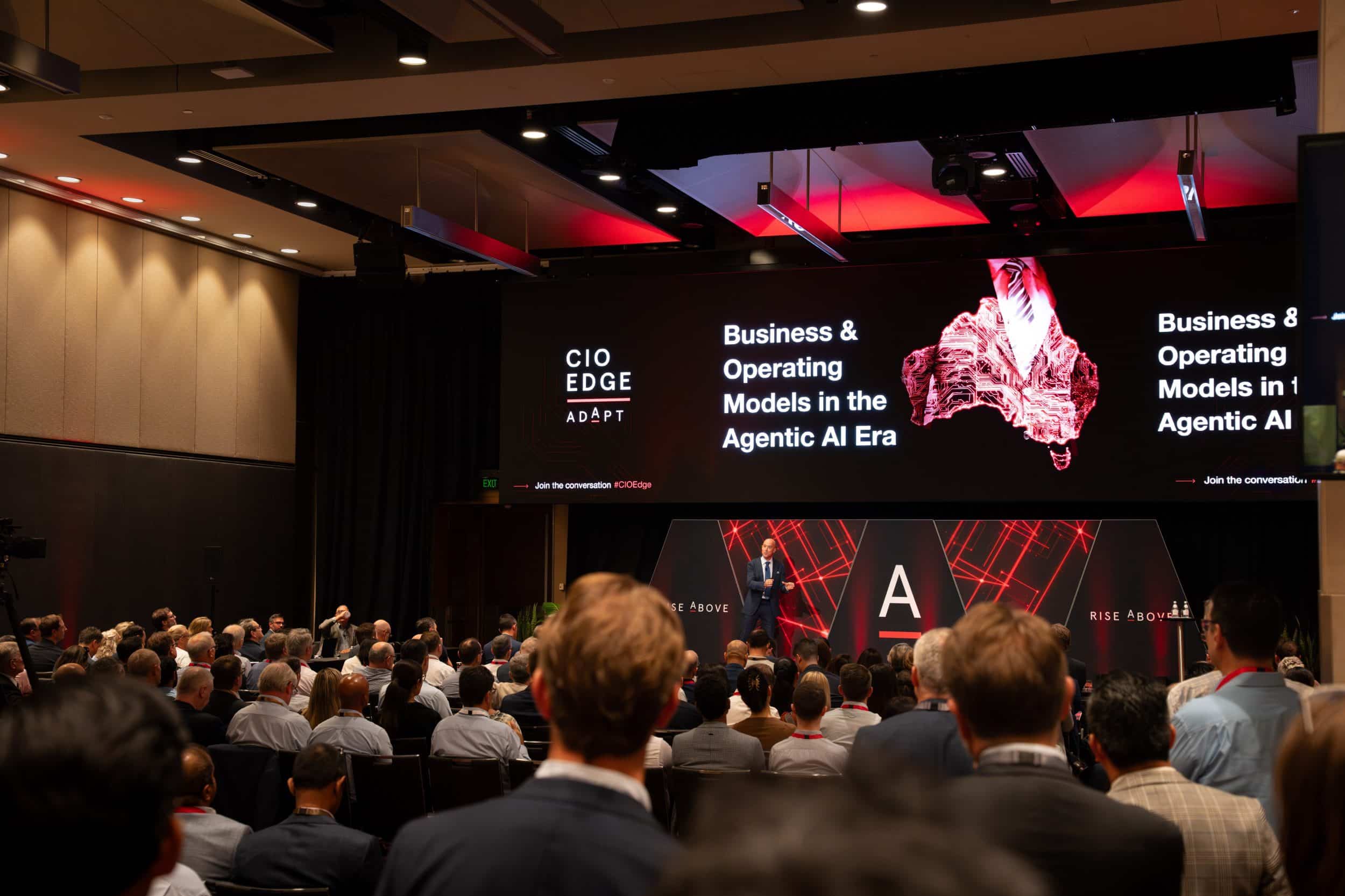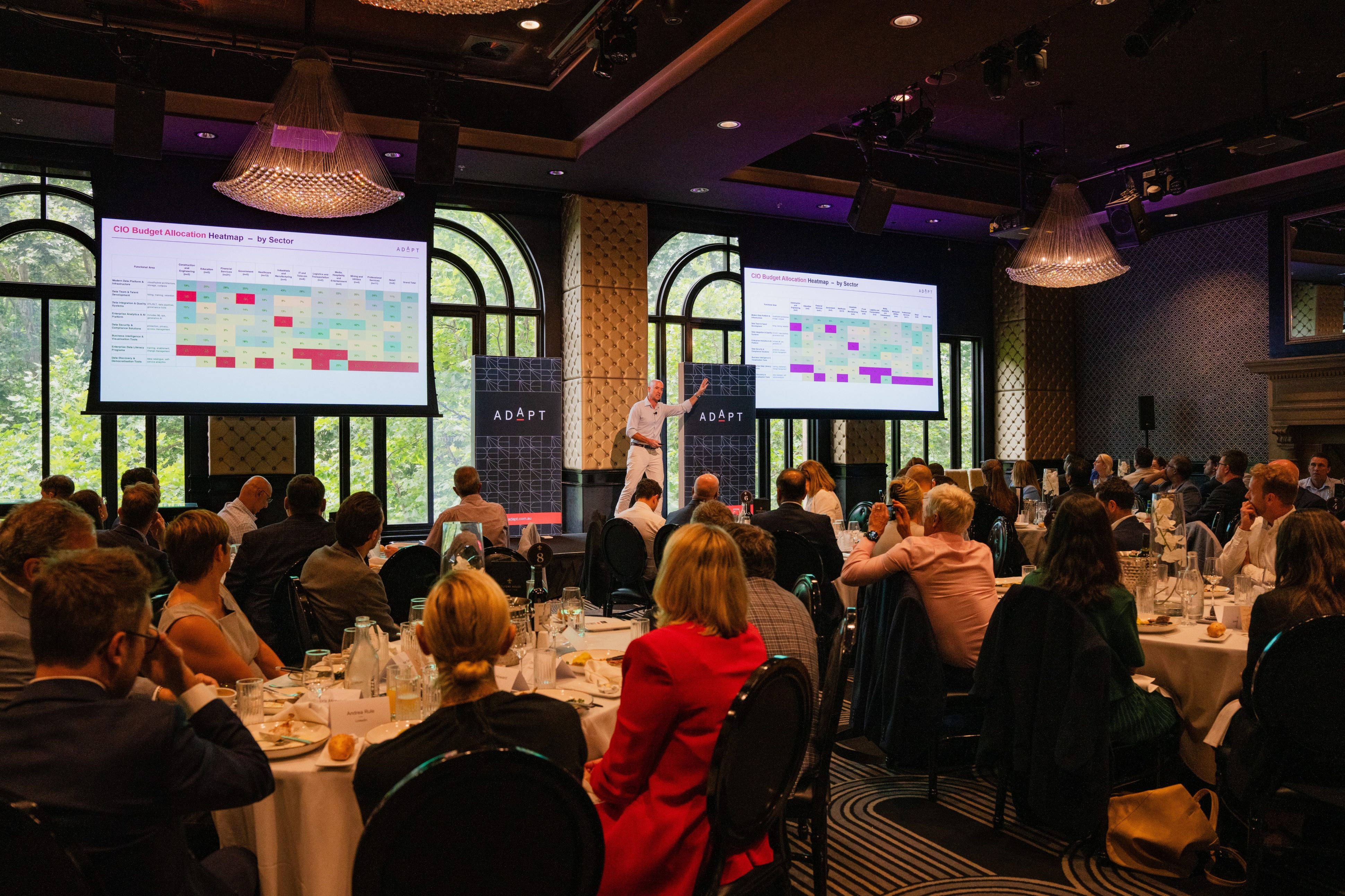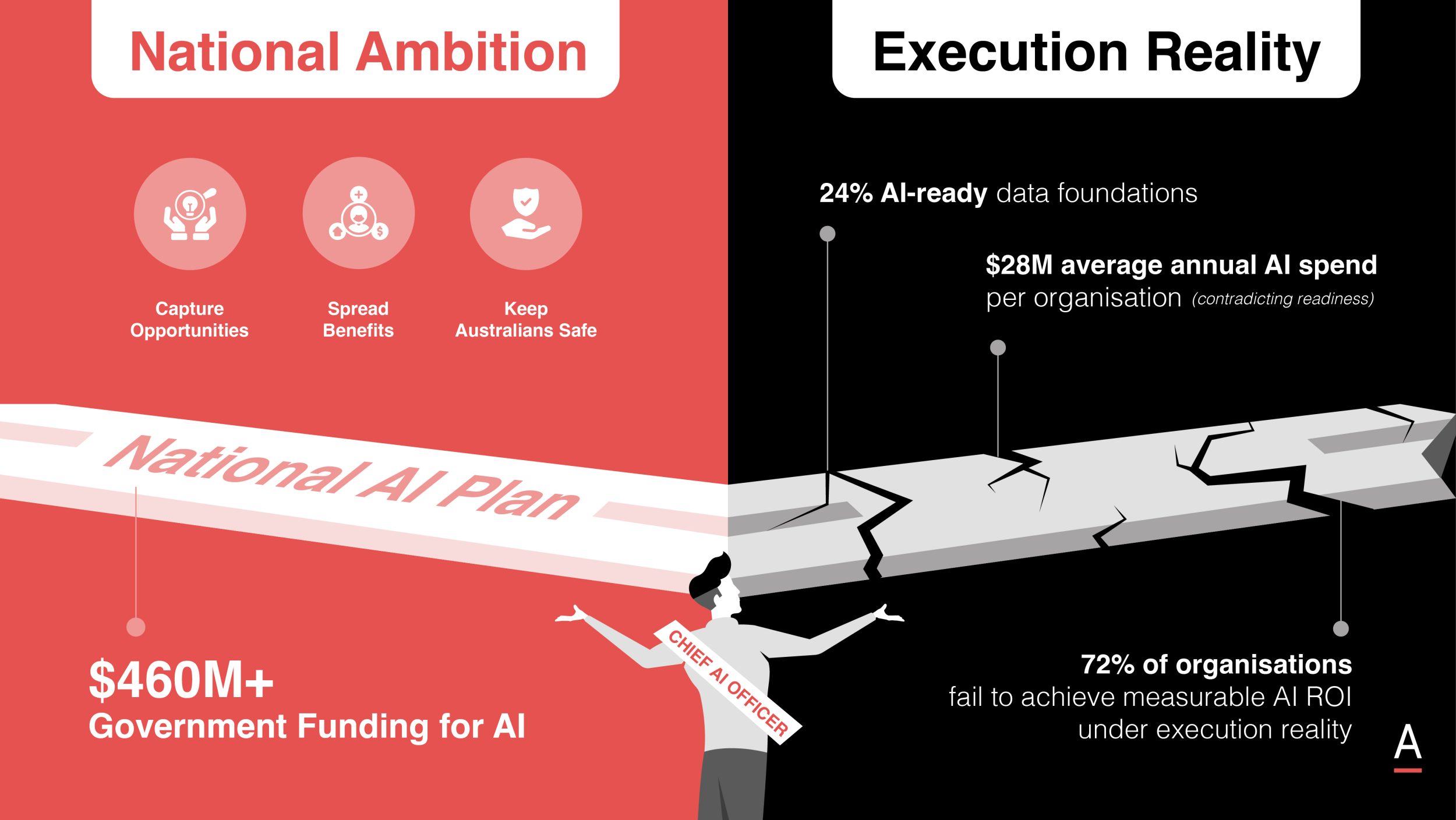Employees Want Wellness, Not Just Economics
Companies that fail to take care of an increasingly digitally mobile workforce will suffer the consequences of employee attrition, customer abandonment, and industry irrelevance.
Summary
Employee expectations for mental health and wellness now exceed the focus on economics. Companies that fail to take care of an increasingly digitally mobile workforce will suffer the consequences of employee attrition, customer abandonment, and industry irrelevance.
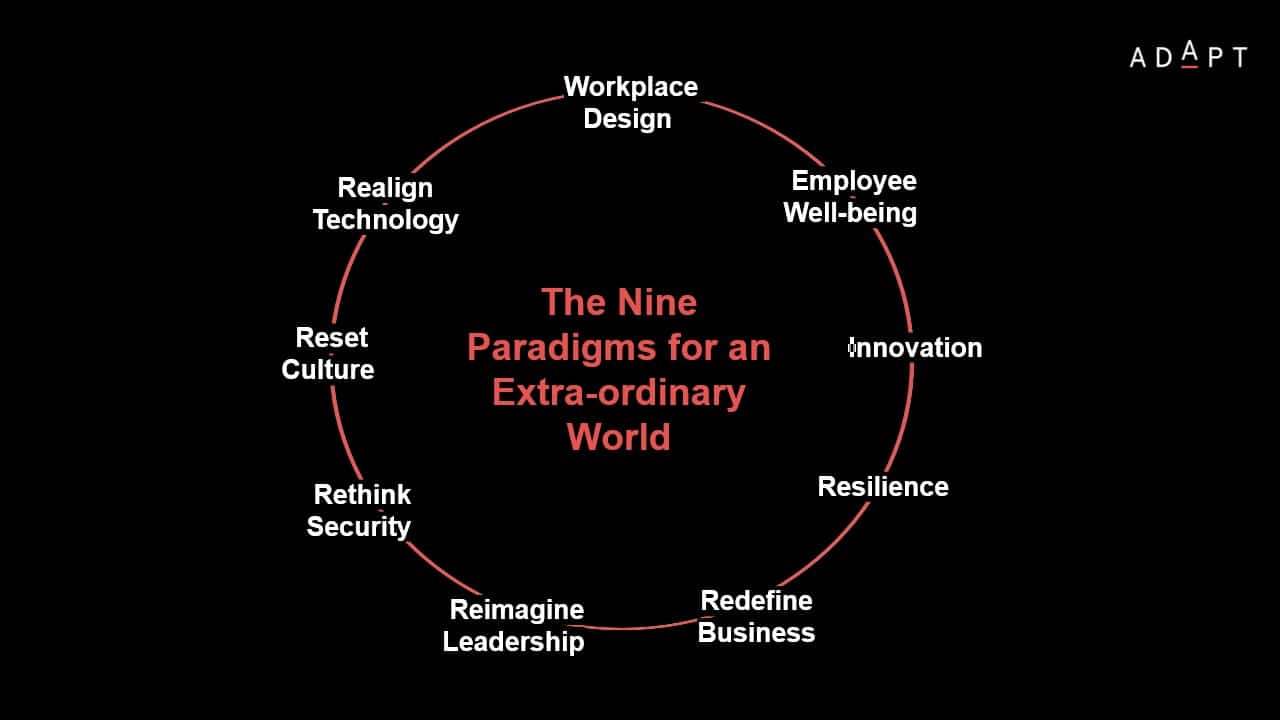
Event Facts
On 20 July 2021, the Sydney-based software provider Atlassian published its Return on Action Report 2021. The report, based on the responses of over 1,200 Australian workers, found that 60% of workers value their wellbeing and mental health over climbing the corporate ladder.
According to Atlassian Co-CEO and Co-Founder Mike Cannon-Brookes: “Mental health is challenging. It is super important to manage that, just as you would manage your physical health. Employees expect more of companies: we have an awesome opportunity to take inspiration from our global workforce to drive change for the betterment of our world.”
Analysis
Employee Resilience is Crucial to Retaining Talent and Maintaining Operations
Inspiring, supporting, and caring for our employees amidst continuing uncertainty are the fundamental tenets underpinning employee resilience. ADAPT’s Connected Intelligence insights in 2021 indicate that technology executives rank creating employee experiences (EX) that are equitable and inclusive as critical to achieving their business priorities, regardless of discipline. ADAPT finds:
- 77% of Digital leaders plan to uplift EX in 2021, 64% of CIOs are increasing their focus in this area, and 64% of Cloud and Data Centre leaders rely on EX to retain talent.
- Although 28% of Digital leaders will increase funding for EX, only 22% of CIOs and 17% of Cloud and Data Centre leaders are expanding their budget to fuel aspiration.
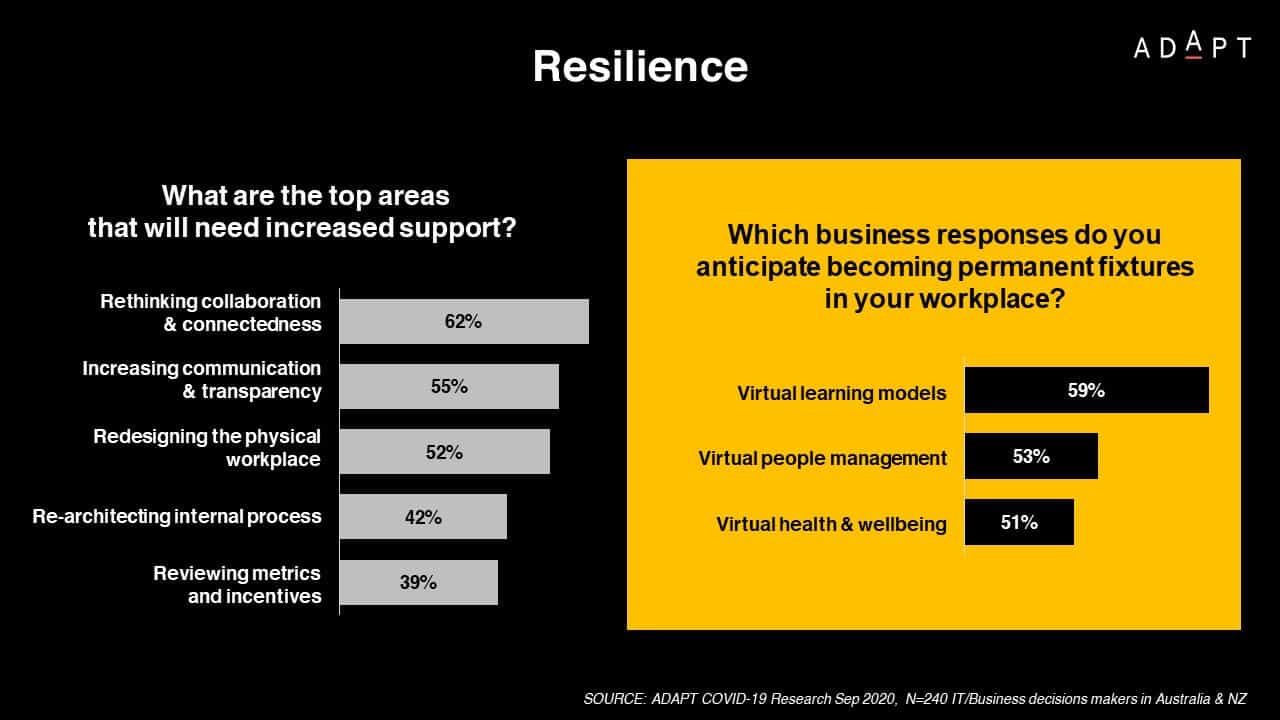
Staff retention and attraction is a top priority for Australian businesses. But digital distraction, siloed information, and creeping isolation feed into the gradual erosion of employee confidence and deepening, adverse experiences. Leaders must do more than rely on the tactical, hybrid adaptations that arose as a response to the realities of early 2020. Employee wellness is not an optional extra. As the public health crisis continues, it is the difference between connection and confusion, engaging and transacting, and care and revenue.
Digital Connection Requires New Leadership Approaches
Leaders charged with navigating the evolving realities need more than technical acumen. They need the poise, presence, and patience to help delivery dynamos to offload, create boundaries, and renew a sense of place and belonging. Survey data collected at ADAPT’s CIO Edge conference reveals:
- 59% of CIOs are investing in broad staff upskilling and training programs, with 52% specifically funding the skills required for digital readiness.
- 53% prioritise digital culture development across the technology dimension; 53% are allocating budget to equip leaders with the aptitudes necessary for a digital future.
The war for talent is real. But so is the ability of organisations to create a culture of inclusion that underpins the resiliency of colleagues under our care. These data highlight Australian CIOs’ relentless focus on providing our people with future-ready skills, developing the right culture, and exhibiting the right leadership aptitudes to build resilience in an incredibly abnormal world.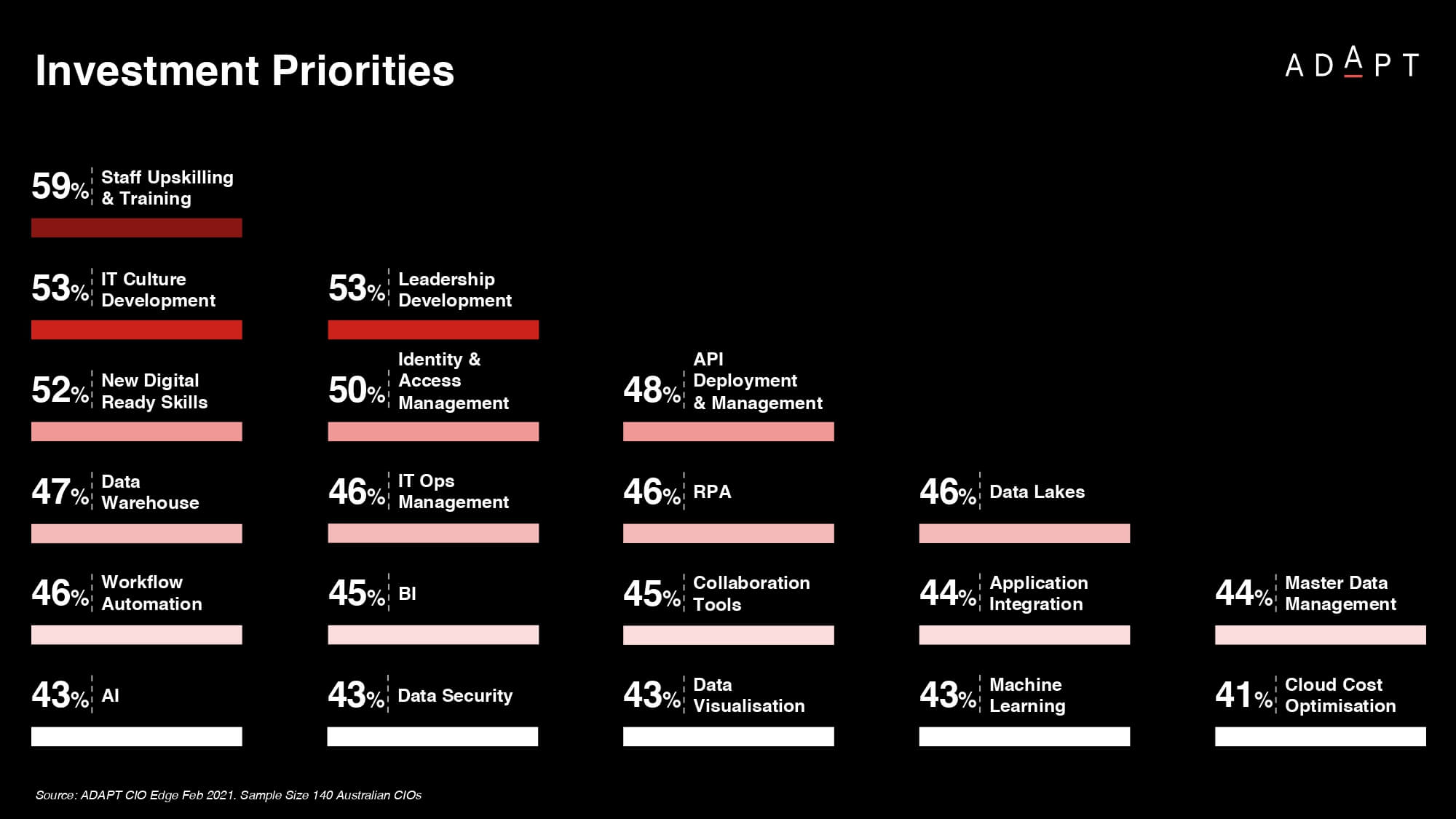
ADAPT Recommendations
Leaders considering the resilience imperative should lead through uncertainty and attend to employee wellbeing.
Benefits of Improving Employee Resilience
- Appeal to a wider demographic of potential hires, beyond traditional talent pools
- Foster a culture conducive to supporting a range of working styles, lived experiences, and reducing the fatigue of social isolation
- Compete for scarce talent as national and state restrictions continue to squeeze the availability of expertise necessary to succeed in a digital world.
Actions to Foster Resilience in a Hyper-Distributed Operating Model
- Equip functional leaders with the support they need to engage effectively with a remote workforce, not just the skills
- Prioritise funds for change challenges in the digital development journey, prefer pragmatism over purity
- Focus less on developing fully-fledged training plans and instead address needs as they arise, developing requested materials weekly or monthly
- Consider the accessibility issues inherent in digital engagement, such as cognitive overload, aural distraction, visual disruption, and motor restriction.
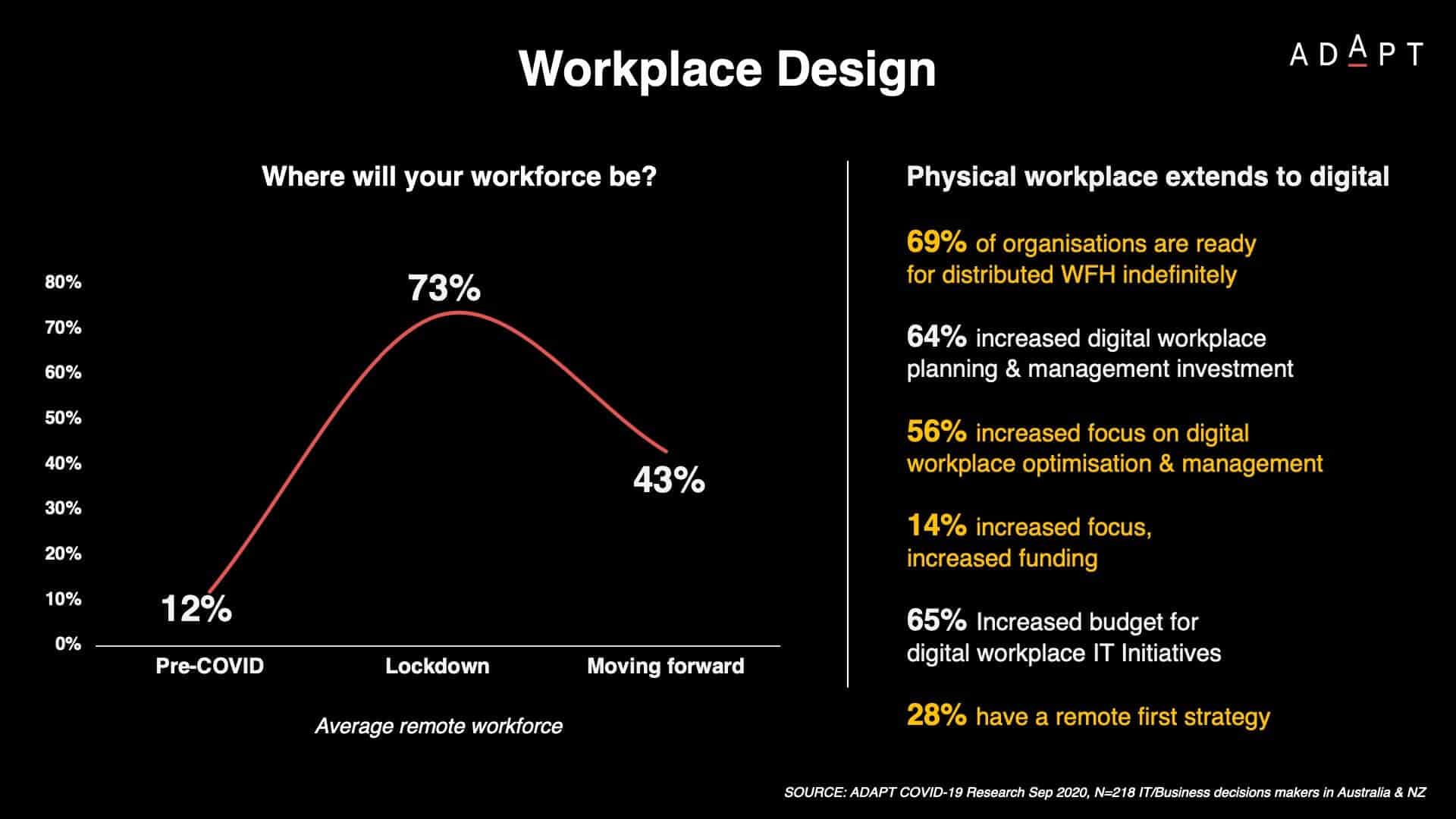
Related Research
Access these ADAPT resources to contextualise the resilience imperative highlighted by the Return on Action Report 2021:
- Nine Paradigms for an Extraordinary World: Workforce Resilience.
- How Outcome-Based Working Can Help Achieve Greater Work/Life Balance.
- Grasp the Power of Innovation to Create Customer and Colleague Delight.
Contact ADAPT by either emailing research@adapt.com.au or your account manager to explore this event in further detail, as it relates to your strategic business priorities.























